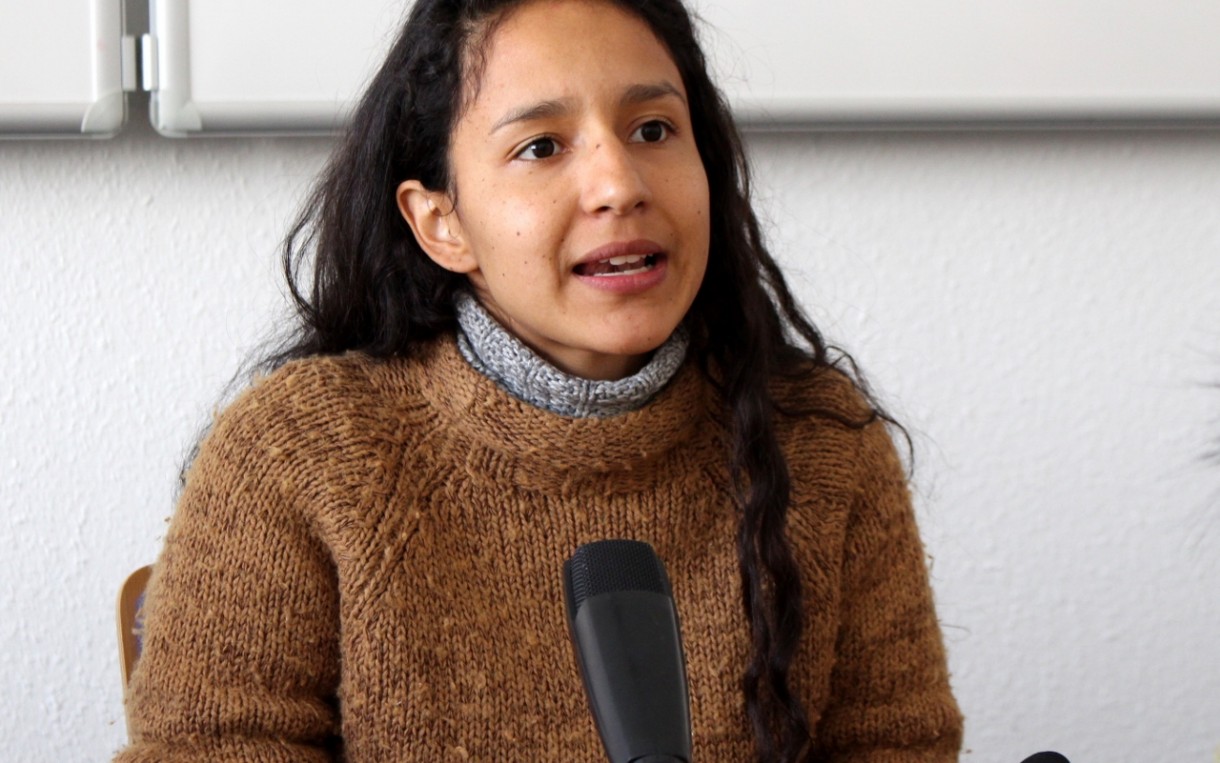US Government has role to play in ensuring businesses respect human rights around the world
 Bertha Isabel Zúniga Cáceres is the daughter of Berta Cáceres, founder of National Council of Popular and Indigenous Organizations of Honduras (COPINH). Source: http://bit.ly/244Yj87/ Sebastian Meyer (Oxfam)
Bertha Isabel Zúniga Cáceres is the daughter of Berta Cáceres, founder of National Council of Popular and Indigenous Organizations of Honduras (COPINH). Source: http://bit.ly/244Yj87/ Sebastian Meyer (Oxfam)
Governments have the duty to protect human rights and in particular those defending them. On this front, developing countries are failing but Latin America is in particular.
On March 3, Berta Caceres Flores was assassinated for defending her people’s land and fighting against the proposed Agua Zarca hydroelectric dam in Honduras. Berta is not alone in fighting to stop projects that impact ancestral lands and harm the environment. Indigenous and rural communities have been doing so for decades in Latin America, Asia, Africa and on native lands in Canada, Australia and the US for environmental reasons but also for social equity and human rights considerations as well. Too often, the mining, agricultural or hydroelectric businesses with tacit support of governments displace those living on it along with causing irreparable environmental damage. Indigenous and rural communities organize to defend and preserve their way of life, their livelihoods and their ability to feed themselves.
In recent years, the global community has made significant progress in defining a common framework of the obligations by governments and businesses to avoid human rights abuses known as the United Nations Guiding Principles on Business and Human Rights (UNGPs). The UNGPs outline the responsibility of governments to protect and businesses to respect human rights and provide for remedy when they fail to do so. It also requires companies to assess the potential impacts from their business operations and supply chains. Unfortunately, the uptake for these principles has been lacking or has only garnered mere lip service by major multi-national corporations. The Obama administration will soon release its National Action Plan for implementing these principles and has the potential to send a strong signal to U.S. corporations operating in developing countries to conduct good due diligence, respect human rights and mitigate impacts and remedy potential harms.
Governments have the duty to protect human rights and in particular those defending them. On this front, developing countries are failing but Latin America is in particular. According to Front Line Defenders 156 human rights defenders were killed or died in detention in 2015 with more than half of those occurring in Latin America. The Administration should do everything it can to ensure that US corporations aren’t contributing to such tragedies. It can do so by releasing a National Action Plan that implements the Guiding Principles and among other things, requires companies incorporated in the US to do the following:
- Conduct due diligence on all investment projects by engaging local stakeholders but in particular potentially affected communities.
- Respect all internationally recognized human rights, including the human rights of freedom of association, assembly, and peaceful protest even in countries where these rights are not being recognized or where the state has been derelict in its duty to protect them.
- Require companies to ensure the Free, Prior and Informed Consent of communities for projects affecting their lands.
- Require companies to provide remedies to individuals and communities who have been negatively impacted by their investment projects.
The US National Action Plan can and should prioritize the protection of human rights defenders and affected communities so that they can assess the human rights impacts of large-scale projects, challenge corporate behavior in instances of abuse, and negotiate with companies on equal footing. U.S. corporations should be held to the highest standard in respecting human rights and the National Action Plan can send a strong message to the world that it will require them to do so.